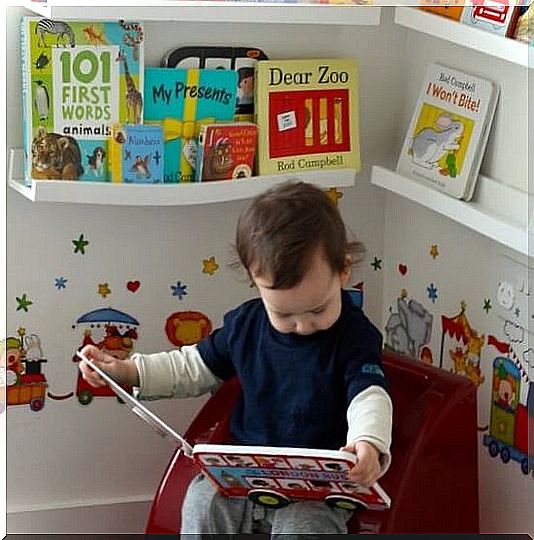10 Tips For Teaching Your Child To Speak

Mom, Dad… These will surely be the first words that will come out of our little ones’ mouths. But as they grow older, the question arises: How can I teach my child to speak?
Advice for teaching to speak
Read to and with them from an early age
It has been proven that when parents make reading a habit in their lives and read to children from an early age, it is easier to teach them to speak. They see verbal communication as something natural and pay attention to the order of prayers, becoming sponges that easily absorb the words.
Singing with the little ones teaches them to speak
There are several children’s songs created exactly for children’s learning. Due to the repetition of these songs, the child will capture and record phrases in his mind that will help him and teach him little by little to speak.
It is not uncommon, in fact, to find babies who not only know how to talk, but who practically already sing children’s songs, putting a big smile on adults’ faces and filling them with admiration for this amazing ability, which they have had since they were little.
Ask questions
It is also very curious how the use of questions helps our children to learn to speak and gradually expand their vocabulary. Mainly those questions that involve choices: “Do you want to eat an apple or a banana?”
Allow time for them to express themselves in their own words.
As the little one wants to start talking and communicating with others, he will start showing objects to make us get them for him. For example, perhaps the child asks us for a toy with his hands and tries, in his own words, to pronounce the name of the object. At this point, we must repress the desire to pick up the object before the child pronounces the name, so that he can relate the speech with the reward.

don’t overspeak
If we want to teach our child to speak and use, as we have seen before, the questioning technique, we must wait patiently for the child to answer without answering for him first. For example: What did grandpa and grandma get you? If the child does not respond at this point, you should expect him to do so without anticipating the response.
On the other hand, if we talk nonstop with the little one and don’t pause or speak calmly, what we’re going to get is that he gets tired and prefers not to say a word.
Use appropriate language
It is neither good nor beneficial to teach a child to speak using weak vocabulary or not pronouncing words correctly, as the child will copy the words as they were taught. This is not to say that you have to speak in a very complex language. On the contrary, you should use simple sentences that the little one can understand, but well pronounced.
Correct indirectly
When our child utters some loose word, what we can do is add a few more words to the sentence, so that he can expand his vocabulary. For example, when the child says: “Apple”, we can add: “The apple tastes good”.
Adapt our vocabulary to each age
Although we use everyday language and vocabulary to teach a child to speak, we should address them in a simpler way and with phrases suitable for their age. Short, simple and specific sentences will be of great help in your language development.
Create a suitable medium for learning
Setting aside a space in the house, such as the child’s room, for their development and learning, and so that they can unleash their creativity, will help them in the slow process of expanding their small vocabulary.

Always value your achievements
It is always necessary to take into account that, no matter how small the achievements of our children in relation to their vocabulary, it is necessary to be aware of and recognize these small steps.
With all this advice put into practice and with patience, we, as parents, will have the satisfaction of seeing and teaching our children to speak.









